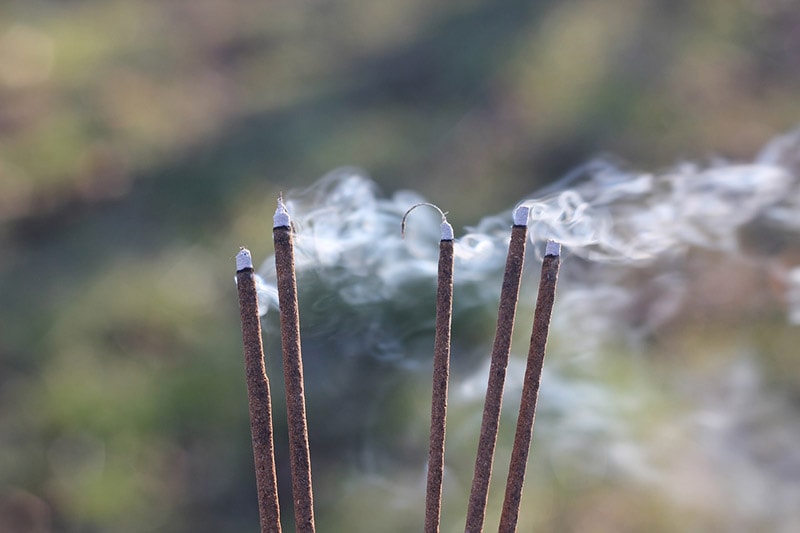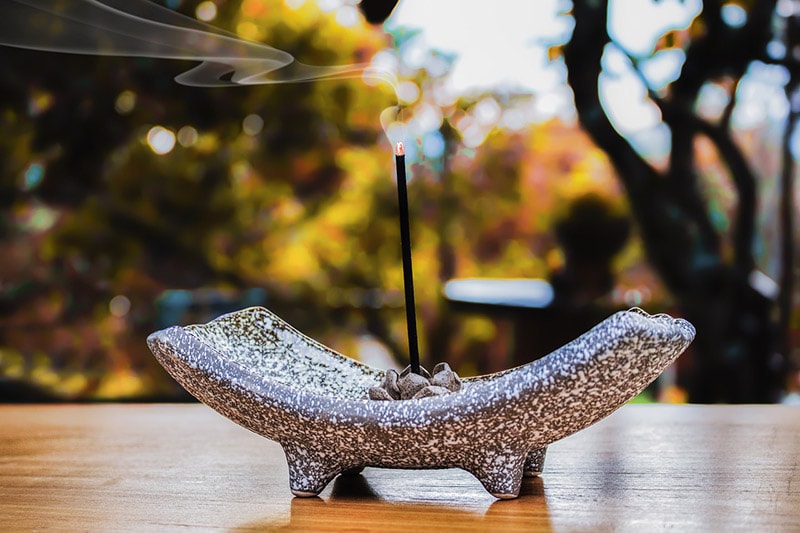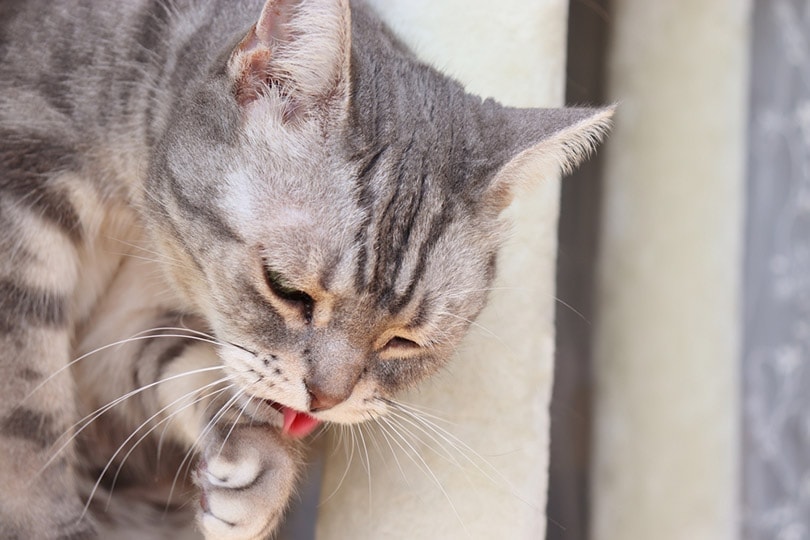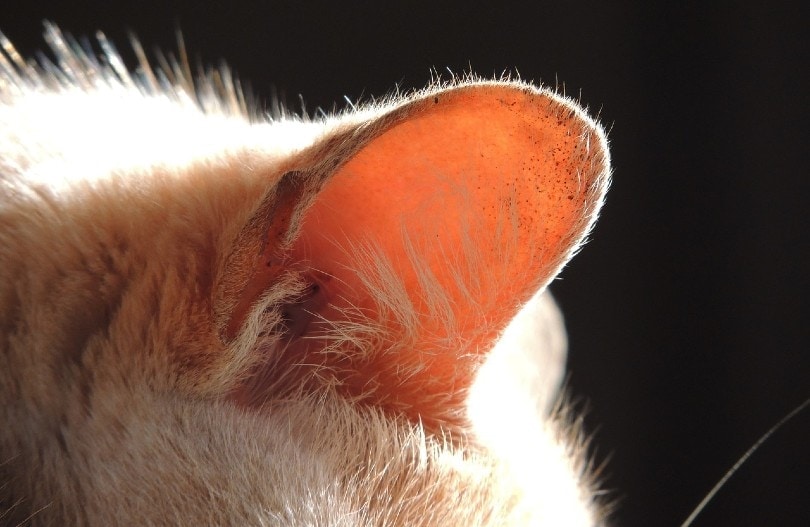Is Incense Bad for My Cat? (Vet Approved Facts & FAQ)
Updated on

Our world is filled with scents, from the shampoo we use to the deodorizer we apply to our carpets. Our sense of smell is incredibly important, although it isn’t nearly as refined as in other animals. Cats communicate through smell or olfaction. It’s hard to overestimate its importance in the feline world.
Incense is one way we can enjoy these pleasing smells. The use of incense goes back to the ancient Egyptians, who also had a strong connection to felines. However, despite how much we like it, it’s not a good idea to burn incense around your cat since it could have adverse health effects on them.
Essential Oils and Your Pet
Many incense products contain essential oils, which provide the scents they emit when burned. They are concentrated volatile organic compounds. If you’ve used these items, you’re undoubtedly familiar with the warnings that some essential oils have regarding their use. Some are simply too strong to apply directly to your skin. That’s why the manufacturer’s directions recommend diluting them.
Felines can’t metabolize some essential oils because they lack the necessary enzymes to break them down. That could be an issue if a curious kitten stumbles upon some incense and tries to eat it. We’ll concede that the chances of it occurring are remote. However, there is another wrinkle to this story.

Passive Diffusers
Many people use incense in different forms, such as passive diffusers. A popular type is a reed diffuser. The sticks sit in a container with scented liquid. The oil moves it up the reed and disperses the scent into the air. If you use reed diffusers frequently, the oil could get on your pet’s coat. Cats, being the fastidious groomers they are, could ingest the essential oils.
Respiratory irritation is another risk, particularly if the animal is allergic to the scent. Some essential oils, however, are actually toxic to cats and other pets.
Scents to Avoid
Phenols are organic chemical compounds widely used in manufacturing. They are also naturally occurring substances. They can cause irritation to the mucous membranes of animals and even people with prolonged exposure. Cats are particularly sensitive to them, however.
- Tea tree
- Eucalyptus
- Clove
- Cinnamon
- Peppermint
- Citrus
Unfortunately, many household products also contain these scents, making their use problematic if you have pets. We suggest only using ones labeled as pet-safe.
It’s worth mentioning that the ASPCA doesn’t consider Febreze toxic.1 However, we suggest not allowing your cat to have direct contact with these types of scented products, either.

Signs of an Adverse Reaction
Skin irritation and vomiting are common signs of accidental contact or ingestion of incense.2 Nonetheless, pets vary in their sensitivity to the essential oils it contains. Signs of a more serious reaction include wheezing, labored breathing, and drooling. We recommend getting your cat away from the incense and into the fresh air. You should contact your veterinarian for further advice.
Remember that cats can smell far better than people. It’s no wonder, given that felines have 40 times more scent receptors than humans.3 What may seem like a pleasant, light scent to you might be sensory overload to your pet.
Summary
While burning incense may seem like a harmless thing, it can have adverse health consequences for your cat, especially if it contains toxic essential oils or potential allergens. Therefore, we suggest avoiding using incense near your pet just to play it safe. Always make sure to air out any rooms where you’ve burned it.
Featured Image Credit: danielam, Pixabay












